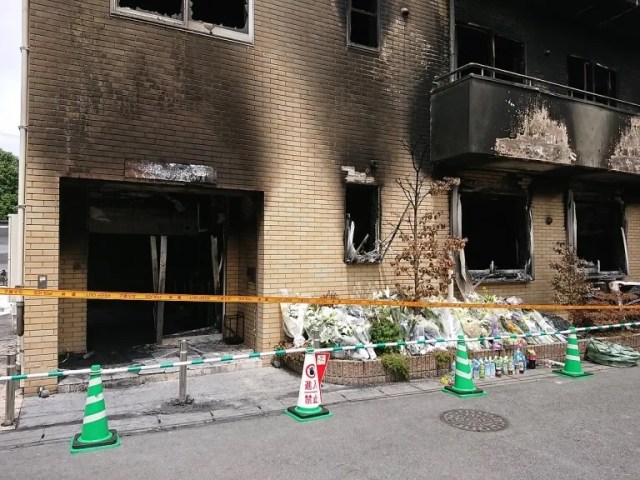Appeal filed to block death sentence for Kyoto Animation arsonist

Defense maintains that defendant should not be held responsible for his actions.
On Thursday, a verdict and sentencing were handed down in Kyoto district court for Shinji Aoba, who in July of 2019 carried out a murderous arson attack on the Fushimi studio of Kyoto Animation, killing 36 people. Aoba has been sentenced to death by hanging, the standard form of criminal execution in Japan.
However, Aoba’s defense lawyer has now filed an appeal in an attempt to block his execution.
Whether or not Aoba set the fire is not in question, as he was apprehended fleeing the scene and has admitted not only to starting the fire, but that he chose his specific methods because they would allow him to kill a large number of people. The appeal instead focuses on whether the now 45-year-old Aoba’s mental condition at the time allows him to be held legally responsible for his actions.
The defense’s argument is that Aoba was in a delusional state at the time, and so should not be punished for his actions. Aoba himself has stated that his anger at Kyoto Animation stemmed from submissions he had made to the company’s periodic novel-writing contest, from which winning entries are often optioned for adaptation into anime series by the studio. Aoba was never awarded a prize in the contests, but he claims that a scene he wrote which involved characters going to a supermarket and buying meat that was discounted for being near its expiration date was plagiarized when characters in Kyoto Animation’s Tsurune sports anime TV series also bought soon-expiring meat to stretch their budget during a team retreat. It should be noted that such shopping practices are not at all unique or unusual in Japan, and so seeing the Tsurune scene as plagiarism alone is outside the bounds of normal logic, and seeing it as grounds for murder is even more so.
However, in its initial ruling on Thursday, the court asserted that Aoba is legally culpable. The court cited the scale of his crime (the arson attack is the largest mass murder on record in the history of the modern Japanese criminal justice system) as well as its calculated, pre-meditated nature. On the morning of the attack, Aoba purchased a large quantity of gasoline in order to accelerate the fire and wheeled it to the studio using a hand cart, during which the court noted that he had ample opportunity to abandon his plan. In addition, the court stated that “The defendant has shown no sign of sincere remorse,” which perhaps isn’t so surprising considering his initial reaction to learning that he’d killed 36 people was a nonchalant “Oh, is that so?”
The appeal will thus likely hinge on trying to convince the justice system that no one who chooses to kill because of a perceived personal slight can be considered of sound enough mind to be held legally responsible. That’s a tall task, though, as societally Japan, for the most part, is not of the belief that legitimate mental illness is the root of all violent crimes, and so it’s likely that the appeal by Aoba’s defense will do nothing more than delay his eventual execution.
Source: NHK News Web, FNN Prime Online
Top image: Wikipedia/L26
● Want to hear about SoraNews24’s latest articles as soon as they’re published? Follow us on Facebook and Twitter!
Credit:

0 comments:
Post a Comment